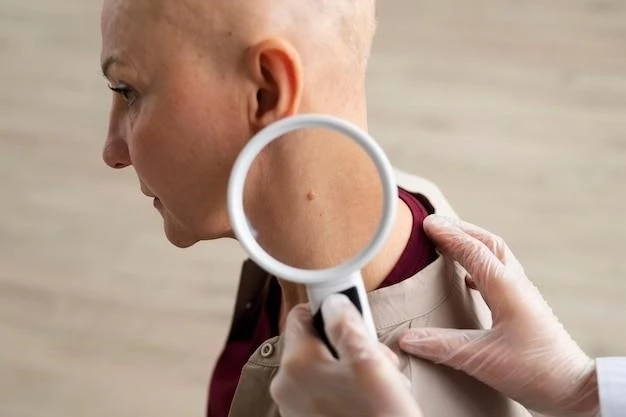Understanding Congenital Skin Disorders
Types of Congenital Skin Disorders
Causes of Congenital Skin Disorders
Treatment Options for Congenital Skin Disorders
Management of Congenital Skin Disorders
Prevention of Congenital Skin Disorders
Genetic Factors in Congenital Skin Disorders
Understanding Congenital Skin Disorders
Living with Congenital Skin Disorders
Types of Congenital Skin Disorders
Congenital skin disorders are conditions present at birth due to genetic factors. Some common types include⁚
- Epidermolysis Bullosa⁚ Causes skin to be fragile and blister easily.
- Ichthyosis⁚ Results in dry, scaly skin due to a lack of moisture.
- Neonatal Lupus⁚ Can cause skin rash and other systemic issues.
- Albinism⁚ Lack of skin pigmentation leading to sensitivity to sunlight.
- Pachyonychia Congenita⁚ Thickened nails and painful calluses on feet/hands.
- Harlequin Ichthyosis⁚ Rare, severe condition with thick, diamond-shaped plates of skin.
It is essential to seek proper medical evaluation and care for a correct diagnosis and management plan tailored to the specific congenital skin disorder.
Causes of Congenital Skin Disorders
Congenital skin disorders can arise from various factors, primarily genetic mutations that affect skin development. Some common causes include⁚
- Genetic Mutations⁚ Inherited genetic changes can lead to abnormalities in skin structure or function.
- Environmental Factors⁚ Exposure to certain substances or conditions during pregnancy can impact fetal skin development.
- Chromosomal Abnormalities⁚ Changes in chromosome structure or number can result in congenital skin disorders.
- Maternal Health⁚ Maternal health conditions like diabetes or autoimmune disorders may influence fetal skin development.
- Spontaneous Mutations⁚ Some congenital skin disorders occur due to random genetic alterations during fetal development.
Understanding the underlying causes of congenital skin disorders is crucial for appropriate treatment and management strategies. Consult with healthcare professionals for proper diagnosis and personalized care.
Treatment Options for Congenital Skin Disorders
Treatment for congenital skin disorders aims to manage symptoms, improve quality of life, and address any complications that may arise. Some common treatment options include⁚
- Topical Creams⁚ Medications applied to the skin to alleviate symptoms like itching or inflammation.
- Emollients⁚ Moisturizers to hydrate dry skin and reduce scaling in conditions like ichthyosis.
- Oral Medications⁚ Systemic drugs prescribed to manage symptoms or control immune responses in certain disorders.
- Dressing Techniques⁚ Specialized bandages or dressings to protect fragile skin or promote healing.
- Laser Therapy⁚ Used in conditions like nevus flammeus to reduce redness or in epidermolysis bullosa for wound treatment.
It is crucial to work closely with dermatologists and other healthcare providers to create a comprehensive treatment plan tailored to the specific congenital skin disorder and individual needs. Regular follow-ups and monitoring are essential to track progress and adjust treatment as needed.
Management of Congenital Skin Disorders
Effective management of congenital skin disorders involves a comprehensive approach to address the physical, emotional, and social aspects of the condition. Here are some key strategies for managing congenital skin disorders⁚

- Regular Follow-ups⁚ Routine visits to dermatologists or specialists for monitoring and adjusting treatment plans.
- Skin Protection⁚ Use of gentle skincare products, sun protection, and proper wound care to prevent complications.
- Emotional Support⁚ Counseling or support groups to cope with the emotional impact of living with a visible skin condition.
- Educational Resources⁚ Access to reliable information about the specific disorder to understand symptoms, triggers, and management techniques.
- Lifestyle Modifications⁚ Making appropriate adjustments in daily activities to accommodate any physical limitations or sensitivities related to the skin disorder.
By actively managing congenital skin disorders through a multidisciplinary approach, individuals can optimize their quality of life and overall well-being. Collaboration between healthcare providers, patients, and caregivers is essential for successful long-term management.
Prevention of Congenital Skin Disorders
While congenital skin disorders are primarily genetic and not always preventable, there are some measures that can help reduce the risk or manage symptoms⁚
- Genetic Counseling⁚ Seek guidance from genetic counselors to understand the risk of passing on genetic conditions.
- Prenatal Care⁚ Comprehensive prenatal care can help monitor fetal development and address any potential issues early.
- Avoiding Harmful Substances⁚ Stay away from substances known to harm fetal development, including certain medications and toxins.
- Maintaining a Healthy Pregnancy⁚ Follow a well-balanced diet, stay hydrated, avoid smoking/drinking, and manage existing health conditions.
- Early Diagnosis and Intervention⁚ Timely diagnosis of congenital skin disorders can lead to prompt treatment and management to improve outcomes.
While not all congenital skin disorders can be prevented, taking proactive steps before and during pregnancy can help promote overall health and well-being for both the mother and baby. Consult healthcare providers for personalized advice and guidance.
Genetic Factors in Congenital Skin Disorders
Genetic factors play a crucial role in the development of congenital skin disorders. Understanding these genetic components is essential for diagnosis, treatment, and genetic counseling. Key points regarding genetic factors in congenital skin disorders include⁚
- Inherited Mutations⁚ Many congenital skin disorders are caused by inherited genetic mutations passed down from parents.
- Chromosomal Aberrations⁚ Changes in chromosome structure or number can result in skin-related conditions.
- Gene Expression⁚ Some genes control skin development and function, and mutations in these genes can lead to disorders.
- Genetic Testing⁚ Genetic tests can help identify specific genetic alterations associated with congenital skin disorders.
- Family History⁚ A family history of certain skin conditions may increase the risk of congenital skin disorders in offspring.
By understanding the genetic factors contributing to congenital skin disorders, healthcare providers can offer more targeted and personalized care. Genetic counseling can also provide valuable information and support to individuals and families affected by these conditions.
Understanding Congenital Skin Disorders
Understanding congenital skin disorders is crucial for individuals and families affected by these conditions. Here are key points to enhance your understanding⁚
- Educate Yourself⁚ Learn about the specific congenital skin disorder, including symptoms, triggers, and available treatments.
- Seek Medical Advice⁚ Consult dermatologists or specialists for accurate diagnosis and personalized treatment plans.
- Support Networks⁚ Connect with support groups or online communities to share experiences and gain emotional support.
- Mental Health⁚ Prioritize your mental well-being by seeking counseling or therapy to cope with the emotional impact.
- Healthy Lifestyle⁚ Maintain a balanced diet, regular exercise, and proper skincare to support overall health.
By enhancing your understanding of congenital skin disorders and actively participating in your care, you can better manage the condition and improve your quality of life. Remember, you are not alone, and resources are available to help you navigate this journey.
Living with Congenital Skin Disorders
Living with a congenital skin disorder can present challenges, but with the right strategies and support, you can lead a fulfilling life. Here are some tips for navigating life with a congenital skin disorder⁚
- Self-Care⁚ Follow a consistent skincare routine recommended by your healthcare provider to manage symptoms.
- Positive Mindset⁚ Focus on your strengths and achievements, and practice self-compassion to boost self-esteem.
- Open Communication⁚ Share your experiences and needs with loved ones to receive understanding and support.
- Education and Advocacy⁚ Educate others about your condition to raise awareness and promote acceptance and inclusivity.
- Healthy Lifestyle⁚ Maintain a healthy diet, stay active, get enough rest, and avoid triggers that worsen your skin condition.
Remember, you are more than your skin disorder, and with resilience, self-care, and a supportive network, you can navigate the challenges and embrace a positive and empowered life. Don’t hesitate to reach out for professional help or connect with others who share similar experiences.
